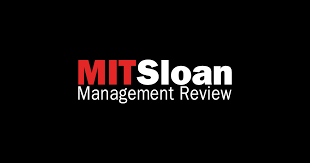
Informed i’s Weekly Business Insights
Extractive summaries and key takeaways from the articles carefully curated from TOP TEN BUSINESS MAGAZINES to promote informed business decision-making | Since 2017 | Week 384 | January 17-23, 2025 | Archive

Three Nonnegotiable Leadership Skills for 2025
By Melissa Swift | MIT Sloan Management Review | January 16, 2025
Extractive Summary of the Article | Listen
2 key takeaways from the article
- There are many, many terrific lists of leadership skills, and given infinite time, it would be great to review them all. But as we kick off 2025, what are the handful of skills you absolutely must have to navigate a tricky moment in the history of human work? And what does research tell us about how to go build those skills?
- 3 nonnegotiable leadership skills you should prioritize — and how to strengthen them. Interpersonal fairness – A great place to start is for fairness is understanding relationship justice, task justice, and distributive justice. Curiosity – to build curiosity, maybe give yourself a break from maintaining an all-knowing facade. And sense of humor – understanding when to not take yourself so seriously and when to not take situations so seriously. Give yourself and others permission to find it all a bit absurd.
(Copyright lies with the publisher)
Topics: Leadership Skills, Fairness, Curiosity, Humor
Click to read the extractive summary of the articleThere are many, many terrific lists of leadership skills, and given infinite time, it would be great to review them all. But as we kick off 2025, what are the handful of skills you absolutely must have to navigate a tricky moment in the history of human work? And what does research tell us about how to go build those skills? Let’s explore the nonnegotiable leadership skills you should prioritize — and how to strengthen them.
The Baseline: Fairness. Workforces are grumpy right now. Engagement is trending down as disengagement trends up; people are polarized in their political beliefs; and majority of the workers are dissatisfied with their pay, a troubling low. But you do have a secret weapon for keeping sentiment from turning too dark: fairness – interpersonal fairness. When a piece of information is given to you, do you judge the information on its merits or solely evaluate it based on who it came from? Do you talk and listen equally in meetings or cut some folks off? Have you ever been accused of playing favorites, and, if so, did the statement have the sting of truth? To be fair, fairness of this type can be tough to implement. Fairness can be a tricky skill to build because it sits so deep within people’s psyches. A great place to start is understanding relationship justice, task justice, and distributive justice — the dimensions of fairness in leadership behavior, as identified by academics. Depending on the dimension on which you feel like you might be falling short, your strategy to build that muscle might be different.
The Growth Accelerator: Curiosity. Are you a solid performer who’s seen as lacking the potential to do more? 2025 is your time, and curiosity is your ticket to the show. Think of curiosity as a way to hack the predictable circuitry of your organization and plot a better career growth journey. Let’s face it: It can be tough to wait for the perfect stretch assignment to come along. When you actively look to learn — both inside and outside the organization — the different sorts of conversations you initiate can help in creating the stretch initiatives and roles you’re seeking. Asking different questions positions both you and your work differently — but you have to be curious to change your question bank. Not being curious could be a career-limiting move. However, similar to fairness, curiosity can seem very innate and hard to build in adult life. If you weren’t the kid trying to break out of the playpen and go hunt through the stuffed-animal chest, is there hope for you today? To build curiosity, maybe give yourself a break from maintaining an all-knowing facade. Take a step back and ask yourself what you know about that you’d love to know more about. This doesn’t have to be a terribly public exercise; like all those other folks, you can even take your learning path right outside the walls of your company. Identify your most interesting information gaps and go fill them. Get in the habit of filling in the blank spaces, and your brain will ask to do it more. Be “interesting and interested,” as the saying goes.
The Saving Grace: Sense of Humor. So let’s say you execute beautifully on the first two skills. You treat your team and other stakeholders with elegant fairness; you strengthen your curiosity muscle and start to grow your career in exciting and unanticipated ways. But we’re halfway through the 2020s, and life in organizations can be highly unpredictable. That’s where the third nonnegotiable skill becomes critical – A sense of humor. The right version of having a sense of humor — the version that’s helpful as chaos swirls around you — is understanding when to not take yourself so seriously and when to not take situations so seriously. If you’re staffing an emergency room or conducting hostage negotiations, you’re exempt from this advice. But for the rest of us, having that safety valve of seeing your own silliness — and, sometimes, the silliness of the things others want you to get VERY, VERY UPSET about — can be an absolute lifesaver. Give yourself and others permission to find it all a bit absurd. Out of the spotlight of incredible seriousness, with fight-or-flight pressure on the brain reduced, many problems actually become a lot more solvable.
show less
Leave a Reply
You must be logged in to post a comment.